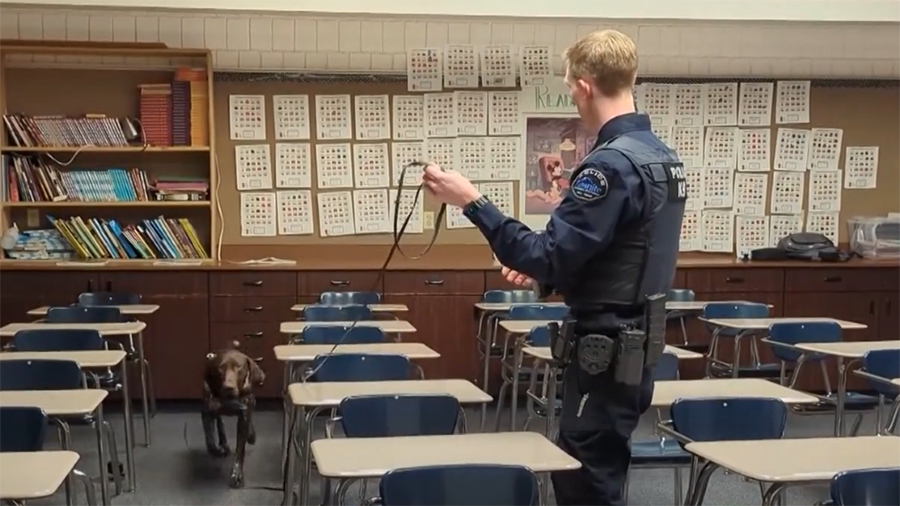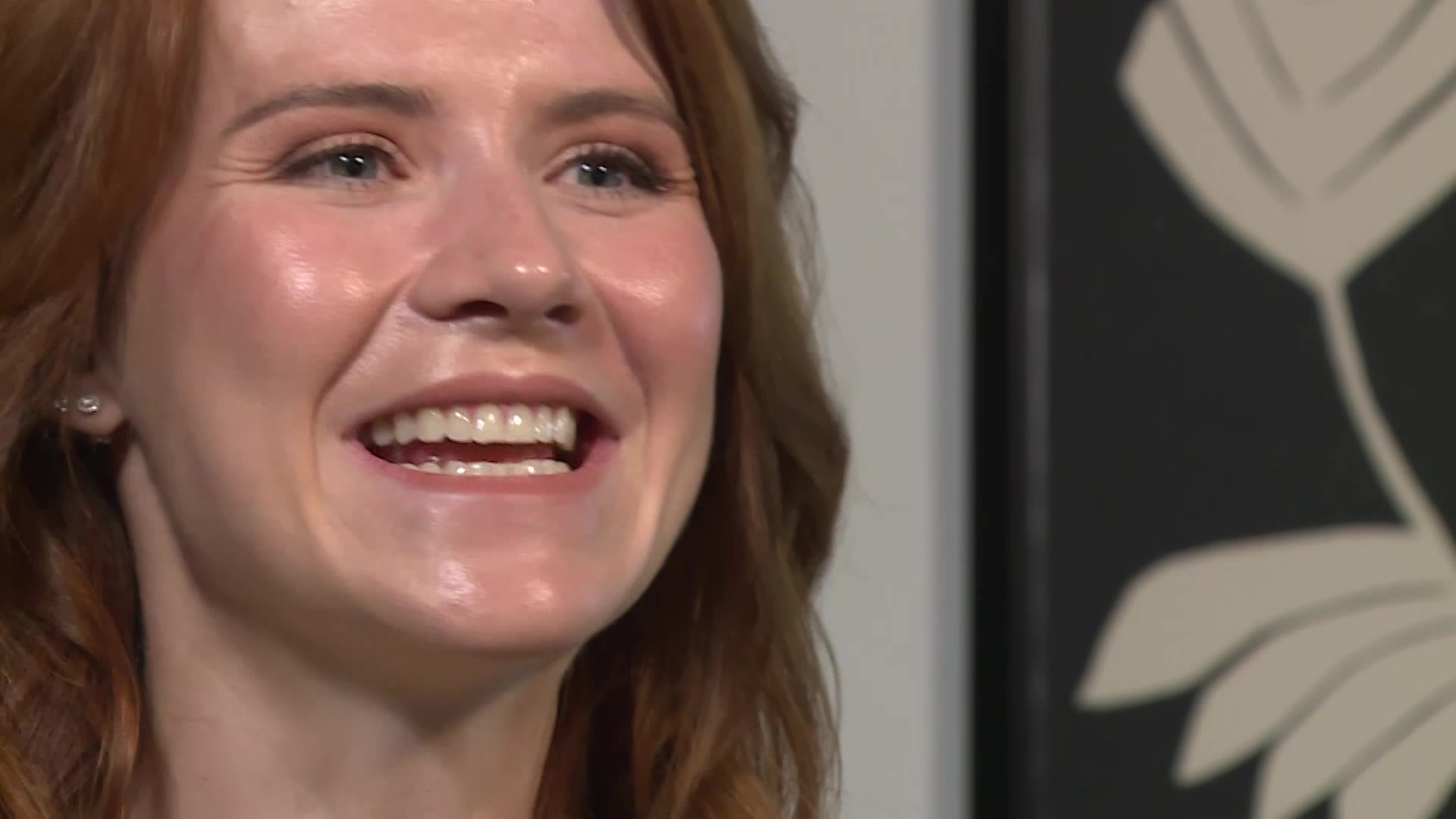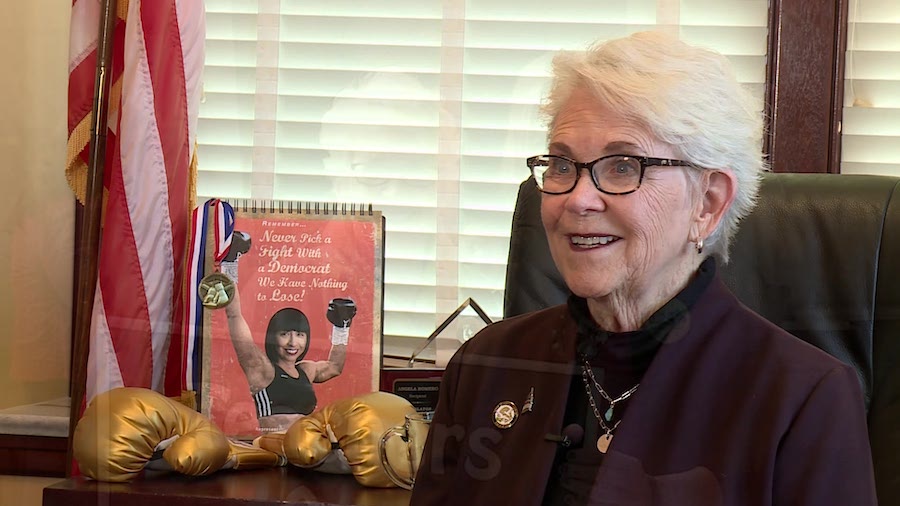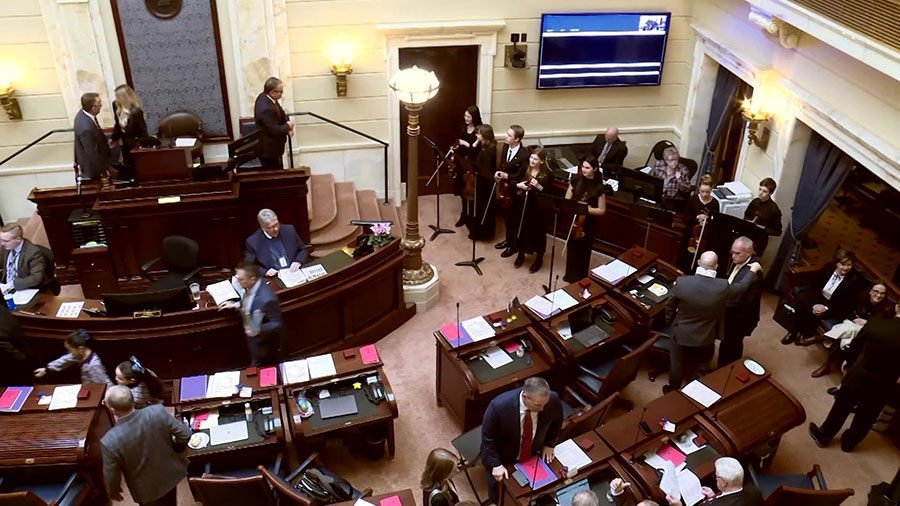Earlier this week, Deanie Wimmer looked at the five changes we can expect to see in schools, post COVID. She joins us here today.
Deanie Wimmer: The number one takeaway I had is that the pandemic devastated some schools and some student learning and it forced us to do things differently. And some of those things had been in the works for years, but they were just too big to happen during normal times. So the bottom line is many feel it would be a wasted opportunity, if now we just went back to the way things have always been done
Matt Rascon: One of the professors you spoke to phrased it as a as an opportunity, rather than just a tragedy.
Deanie Wimmer: Exactly. And that we should look at it as such. The kind of technology that we got, the online learning that we got, the equity and just the new way of looking at things have really been game changers for a lot of families and communities.
Douglas Harris, Brookings Institution: Since we are being forced to rethink everything right now and since we’re trying all these new things, there’s a temptation to just go back to the way it was. But since we’ve now tried all these new things, it would be kind of a shame to just go back to the way it was. And clearly, there are things that we can do better. And now that people have tried them, they’ve gotten out of their comfort zone, this is a chance to make some of those more positive changes permanent.
Matt Rascon: How is the role of parents changing from the pandemic, just as far being more engaged. It’s not just go off to school when your student is sitting in the next room over working on homework.
Deanie Wimmer: Exactly, exactly. This changes the notion of a parent who sends their child off, to more of a partner in education. Don’t get me wrong, many parents already do that, and operate in that in that role. But when you are learning from home and your child is not sitting in a class, in front of an instructor, the parent is taking an active role in making sure their student understands things, or making sure that they get the tutoring and the augmented help that they might need. And schools are having to provide that. But it just it puts parents in more of an active role with that flexibility.
And the ability to take your kids on a trip or to pull them out for a sports tournament, then the responsibility is even more on the parents and the family to make sure you’re learning and engaging.
Matt Rascon: This is a different conversation from what you’ve been hearing nationally. I mean, President Biden has made it his priority to get kids back in the classroom, and a lot of people pushing to push things back to normal because students are losing out on so much education. And in falling behind. Did you get any of that while you were having these some of these interviews these conversations, concerns about kids falling behind or losses? Or was it really the opportunities going forward?
Deanie Wimmer: Both. This learning loss is the state’s number one priority. The State Office of the State School Board has told me that their number one thing going forward is helping students who missed out who fell behind, fell in the cracks to help them catch up. And if you look at the state’s budget, what they were requesting from the legislature, there are tens of millions of dollars going to help students remediate, to help them learn more. That looks like summer school. There will be more robust, in-person summer school in many districts. That’s just one thing that will help address learning loss.
Douglas Harris, Brookings Institution: And federal money, that’s an additional interesting piece here because now especially on the technology side, schools are able to do things over the next couple of years that they wouldn’t have imagined otherwise. Like providing laptops and internet access to all students and access to new software packages and things that they might not have had a chance to do. So we put the crisis together with the fact that it’s forced us to change the things that we’ve done and gotten us out of our comfort zone, and then you then you put some money behind that. And those things could be a powerful force.
Matt Rascon: We want to look at this a bit more. Here’s more of Deanie’s conversation with Douglas Harris from the Brookings Institution.
Deanie Wimmer: Has it been surprising to you though, that things like changing schedules. Our community studied that for years and years, when push came to shove, we just did it.
Douglas Harris, Brookings Institution: When you’re put into a crisis you have to respond when in day-to-day life, you don’t usually have to do anything. We change because we want to, and there are enough forces going on behind it to make something happen. But when a crisis hits, everybody reacts in the schools, we’re trying to just provide a basic education as best they could when this hit, and that required that enormous set of changes.
So it doesn’t surprise me that schools, most schools are able to react, but they’ve reacted in very different ways. And some reacted really well and aggressively, and some weren’t able to, for various reasons, some of which were outside their control.
Deanie Wimmer: He was really the one that shaped my perspective of this. There really is a silver lining in all of this– both a tragedy and an opportunity. He has worked in New Orleans, and in Hurricane Katrina, schools and entire communities were decimated by the floods. They had to totally rework and reevaluate how they looked at schools. And so schools were no longer neighborhood schools. Students didn’t have to go to school anymore at the school that’s in their neighborhood, they would go to the one that worked best for their situation. They had to overhaul the system. He saw that in in New Orleans, their schools emerged stronger,
Douglas Harris, Brookings Institution: We had to have school choice, we had to let people pick where they went to school because you couldn’t use neighborhood anymore. The neighborhood didn’t really exist anymore. And that was something that stuck. It wasn’t something they ever would have done for any other reason. But once they did it, they realize that they should stick with that. And it continues today. And I think there’s probably many things like that. We don’t even know what they are yet. But we do know that schools are being forced to change.
Christy Fitzgerald, Assistant Superintendent, San Juan School District: This is a pretty speedy turnaround for such a complex process. We wish that pandemic never happened. But it’s really amazing how everyone can come together to create such a great outcome, in such a difficult circumstance.
Matt Rascon: There was a pretty powerful example of some of those in the story you shared, especially out in San Juan County. Can you talk a bit about that story there and your conversation with both students and the Assistant Superintendent about things that really ended up being a real positive outcome from this pandemic?
Deanie Wimmer: Schools all over the state had to address the fact that there’s some students didn’t have computers, didn’t have WiFi. But it’s much more drastic in San Juan County, they don’t have those things. But they also don’t even have an internet system, their homes and their communities aren’t set up on an internet system.
And so the district had to build an infrastructure. Literally, they have invested millions of dollars and CARE’s Act money to build transmitter towers, radio receivers, and then to hook them up. It starts at the school. And they built these towers to pick up a signal on the nearby mesa. And then they had to put a tower in at the Hogan, at grandma’s house and then one goes to the neighbor’s house, and then one finally connects to the student’s house. There are 500 families that they have had to hook up this way. And for those families, this is an actual game changer. Now, not only can they graduate from high school, they could graduate from college this way. They wouldn’t have to leave their reservation and their families. They could get more meaningful jobs. This way their parents can attend parent teacher conferences. It just equalizes their learning opportunities and their abilities to operate in an information age.
Matt Rascon: So many challenges that they’re dealing with a lot of us don’t and it’s easy for us. I think the word “granted” was thrown around in that interview a couple of times. Easy for us to take those things for granted. But clearly, it’s a different story for these students.
And here’s more of that conversation with the San Juan county assistant superintendent,
Christy Fitzgerald, Assistant Superintendent, San Juan School District: You can say the Diné people are resilient and they’re persistent and they take care of each other. This idea of kinship and clan has really helped them get through this pandemic, and what’s been happening that has been just so heartbreaking. And as we think about that, it’s also going to be what continues to allow them to grow with this new opportunity.
Not all of our students right now have internet, we still have a lot of students that don’t, but we have families that help each other out. They drive to our internet drive-bys, they will take more than one student out there and they’ll park in the car, or they’ll come to the school and access the internet outside of the school, because we still are not able to have students in the building. And they help each other out that way. Or if one person has internet, they’re, helping out the rest of their family to be able to have that internet.
So this is definitely something, when we think about equity, that this is going to spread to all of our students and give that opportunity for all of them is just so exciting. And it is heartbreaking. The pandemic has been absolutely heartbreaking for our families. So we consider the amount of grief, and loss for our students. And the opportunity this provides, is really the silver lining right to everything that’s been happening. And, you know, I think our schools are the heart of the community…and that internet, providing a better connection to that and connected to everyone together. I mean, that definitely is a silver lining for everything that’s occurred.
Matt Rascon: As we looked more into all of these topics, we spoke with David Boren, the director of the school leadership program at BYU, who said, how we look at the outcomes from this year will really depend on what we find most important from our kids’ education.
David Boren, School Leadership Program at BYU: There are some legitimate opportunities here to grow, and develop and to experience this post traumatic growth. Some of the precursors for that are having a strong social network. And the kids that are that are doing online, some of them that don’t have that in their homes, with their families, are really struggling. And they need to find a way to build that relationship, that connection, that belonging that’s so critical for that post traumatic growth. If they don’t have that, it’s likely that they will experience post-traumatic stress. So to get to your question about goalposts, a lot of it’s going to depend on what we see is the purposes of education. Is it primarily academic–acquiring those academic pieces of content knowledge? Are there other things that we care about, like collaboration and communication, creativity, or dispositions, like character, strength, resilience, citizenship?
I think this pandemic has really brought to the forefront how critical some of those soft skills are, and how critical it is that we as schools and communities partner together and help develop those things in our students. So we need to find better goalposts and measures for things like well-being, for collaboration, and creativity. And those are the things we really care about. But we’re still scratching our heads on how do we actually assess that? And so we still defer back to those academic measures, which of course, are critical. Students need to know how to read and write, and basic numeracy, which is what a lot of those statewide standardized tests are trying to assess. And those are critical.
I used to tell my teachers when I was a principal, I used to say, “If our students don’t learn to read, write and do math, then we’re not doing our jobs. But if that’s all they learned how to do, then we’re not doing our jobs.” So this pandemic is really brought to the forefront the need to reexamine, what is the purpose of education? What do we see is the purpose? How do we assess that with some of these goal posts reasonably? And then how do we move forward towards those goal posts.
Deanie Wimmer: A lot has changed in the last year in schools. But as far as opportunities, there were five things that really stood out to me. The first one is online learning and that’s one that is not going to go back. It’s not going to change. Students no longer have to sit in seats in order to learn. They can learn from home, they can learn from vacation. And so it also becomes more flexible. That has been a big change that parents want to see stay.
With those two changes, though, we’ve seen inequity for communities that don’t have computers, and internet and things like that. And so we’ve seen a lot of efforts toward equity. And that has been a game changer for a lot of communities. The fourth thing that I saw that is going to be a big change is well-being–it’s not just a fad, it’s not just a feel good word. We really saw mental health being a big factor, and schools are spending millions of dollars to address it going forward.
And finally, standardized testing seems to be an opportunity since now you can learn from home and you can you have all this technology, it seems that there doesn’t need to be weeks devoted to taking a test on a piece of paper with a pencil. They’ll have to figure that out. But those were the five things that I think will really see staying power in schools.
Matt Rascon: The pandemic, of course, was so broad and wide scale. It impacted everyone across the country. But there are other interruptions that have happened in the past with kids in school years. And there are more interruptions that are going to happen in the future, whether it’s natural disasters, whether it’s things like shootings or sickness or whatever it might be. What do we take from the pandemic, and COVID moving forward that will help out when these things come up again?
Deanie Wimmer: I think the number one thing that we can take from this that will help address these dire circumstances is what we’ve seen when it comes to online learning. Online Learning can allow for students who are sick, who have long term illnesses or health problems, a community disaster that is isolated, or even widespread, can still learn. Because now both teachers and students can do what they need and access that from home. Even on a snow day, weather related things, those no longer block the education learning process. And then when you think about it, technology allows us to really look at the school year. The school year doesn’t have to stop in May, they can now look at more summer school options. They can look at more four-day options that work. I mean, it just it gives you options and things to broaden how and where and when students learn. And so anytime you are removing barriers, it can improve the chances the students have of getting educated and changes that we will likely see for generations to come.
Matt Rascon: Thanks so much for joining us this week on KSL+. During the month of March, you may have seen it, we also looked at the lasting changes in healthcare and business. You can find and watch those on the KSL-TV app and on KSLtv.com/KSLplus. We’ll see you next time.













